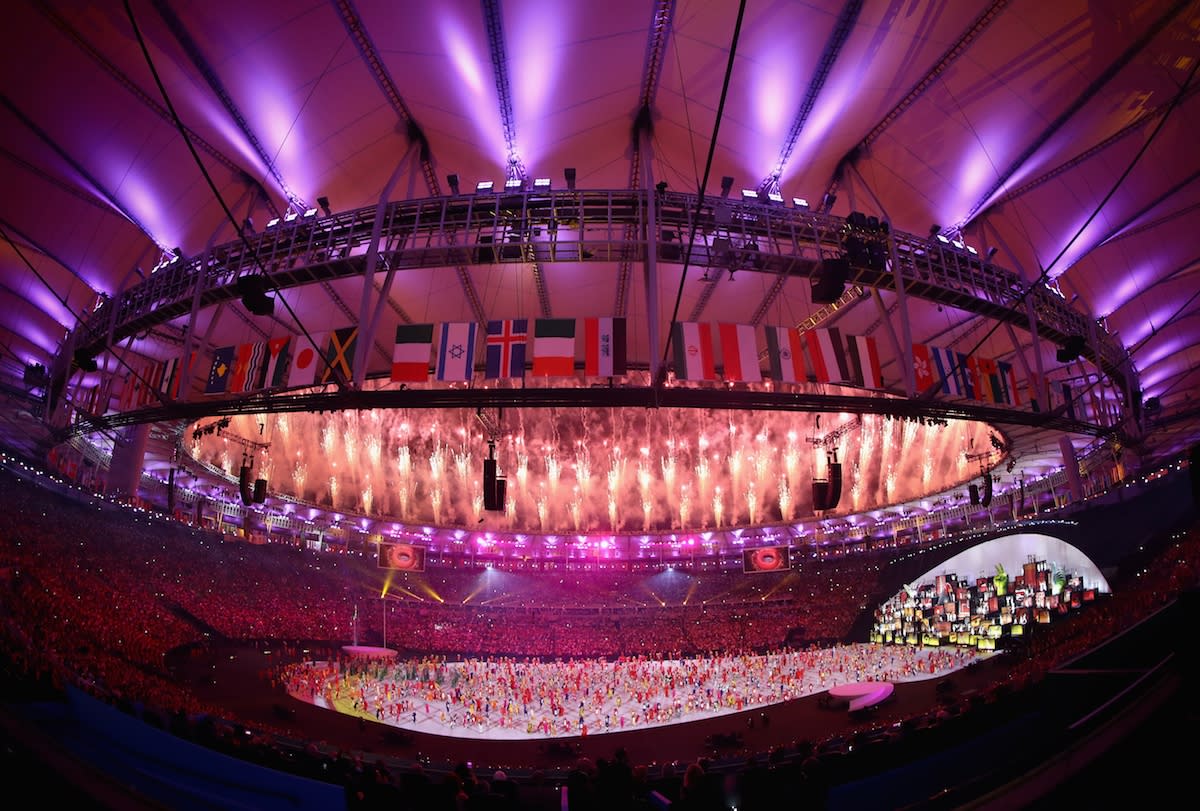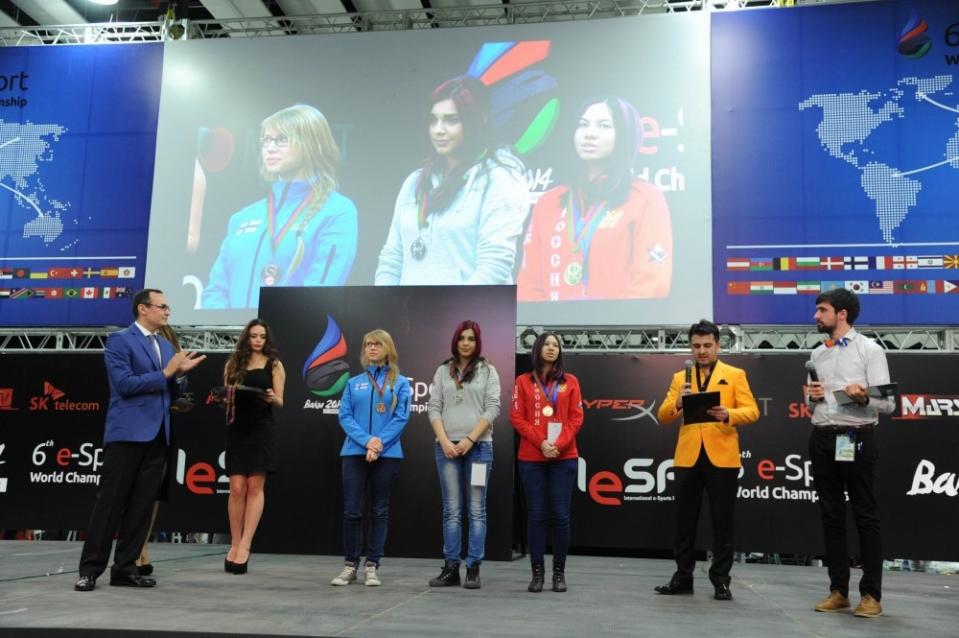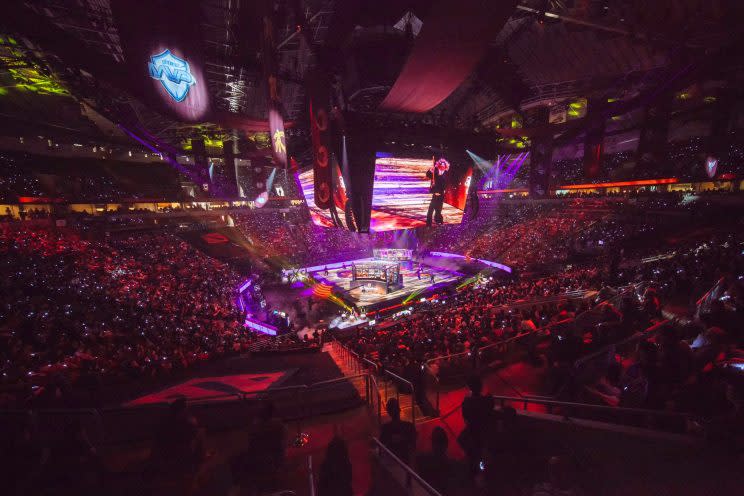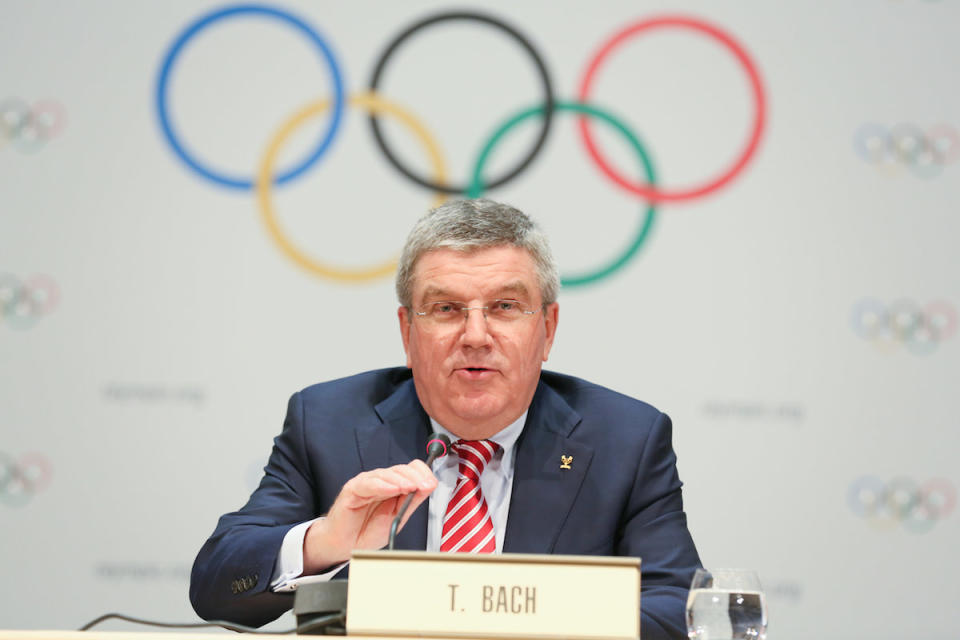Esports at the Olympics? Here's how that happens

Surrounded by a small cavalcade of police officers and photojournalists, Li “Sky” Xiaofeng, one of the best Warcraft 3 players in the world, jogged down the middle of a busy street in Hainan, China. Grasped tightly in his right hand was the 2008 Olympic torch.
Alongside his longtime rival Jang “Moon” Jae-ho, Sky had been selected out of a group of ten professional gamers nominated by Razer, the gaming peripheral manufacturer, to have the honor of participating in the relay procession before the Beijing Games.
Of course, Sky and Moon would never make it to the actual games in Beijing. Instead, they simply kicked off a supplementary marketing event in Shanghai dubbed “The Digital Games” four days prior to the start of the Olympics. The reason? Esports has yet to be recognized as a legitimate sport by the the International Olympic Committee (IOC).
That should change soon. Comprised of members from over 100 countries, the IOC determines what and what does not become an Olympic event. There’s legitimate precedence here that should at least qualify esports for consideration. In 1995, the IOC formally recognized Bridge as a sport. Four years later, Chess was recognized as well. They’re both listed under the ‘Mind Games” category. So should esports.
But a few things need to happen first.

Esports needs its own federation
Before a sport can be recognized by the IOC, it first needs its own governing body.
Esports supposedly already has one: the IeSF (International e-Sports Federation). Affiliated with WADA (The World Anti-Doping Agency) as well as the IAAF (International Association of Athletics Federations), the IeSF sent an official letter of request to the IOC back in April and received a reply back detailing all the necessary documents that must be filed in order for the organization to undergo its first evaluation in December. They are also currently working on establishing legitimacy by obtaining a membership in SportAccord, a well-respected union of sports federations that include FIFA, FIBA, and – you guessed it – both the World Chess and World Bridge federations.
To bolster their claim, the IeSF recently struck a strategic partnership with asian tech giant Alibaba. The $149 million deal is meant for the federation to build out the competitive circuit that it’s been hosting for the past nine years, though the idea that IeSF has been around for nearly a decade will come as a surprise to many. This is the most concrete governing body esports currently has, and most people have never even heard of it.

Esports must meet Olympic requirements
So we have a federation (almost) in place. What next?
The IeSF will have to do their part to ensure that esports meets the criteria set forth by the IOC as to what constitutes a “sport.”
That’s actually pretty straightforward: the official website of the Olympic games states that any candidate sport to be “widely practiced”. Esports absolutely meets this requirement. There were 22 countries represented at the Dota 2 International this year alone. The IeSF claims to have 47 member nations in the federation (though if you look closely you’ll see that the United Kingdom, Germany, and the United States are missing from that list). It must also meet the criteria set forth by the Olympic Charter.

The IeSF has to convince the IOC to recommend esports
Remember how Bridge and Chess were recognized as sports by the IOC in the 90’s?
They’ve never been in the Olympics.
This is where esports runs into a brick wall. Neither Bridge nor Chess involves physical activity, and both have been denied their day in the sun on the official Olympic register every single year because of it.
“Mind sports, by their nature, cannot be part of the program,” said IOC spokeswoman Emmanuelle Moreau in an interview with TIME Magazine in 2008.
Even with all the right paperwork and functions in place, this somewhat outdated mindset held by the IOC may ultimately be the reason we never see esports in the Olympics in our lifetime.
But there’s hope. Today, the Olympic torch is in Rio de Janeiro, where the best athletes in the world are representing their countries. If you walk out of the venue and down the street you’ll find the “eGames pop-up” this year. According to their website, the goal of eGames is to “showcase the eGames movement to the world, especially to mainstream media.”
The media has already noticed. In fact, we have covered news that fans are frequently writing letters to the U.S. government vouching for players who need to acquire P-1 visas in order to enter the country and compete. These visas are reserved for “internationally recognized athletes,” and are secured by professional gamers fairly frequently.
If the U.S. government is willing to recognize esports players as athletes worthy of admittance, shouldn’t the IOC at least consider it? Other countries, including Korea, Japan, Germany, France, and Sweden, allow pros to travel and earn money under the umbrella of athletics. It’s hard to imagine that the IOC holds out on adding esports to the program for much longer when it’s already recognized in this respect by much of the global community.
But I wouldn’t hold my breath. The IOC is notoriously stubborn, and though it seems odd to me that pseudo-sports like trampoline and whitewater slalom are in the Olympics while more popular events are left out, changing tradition is a difficult game indeed.
Dylan Walker is on Twitter @dyluuxx

 Yahoo News
Yahoo News 
